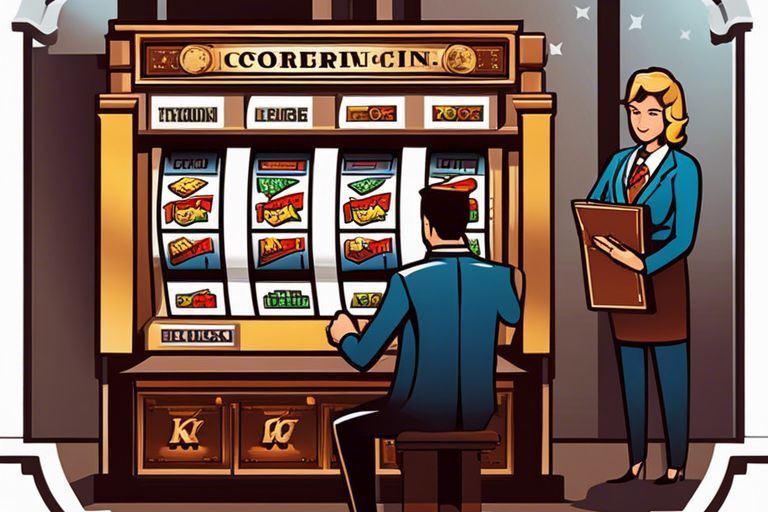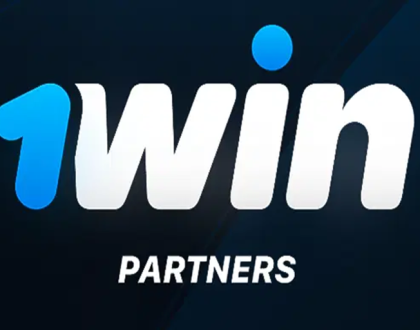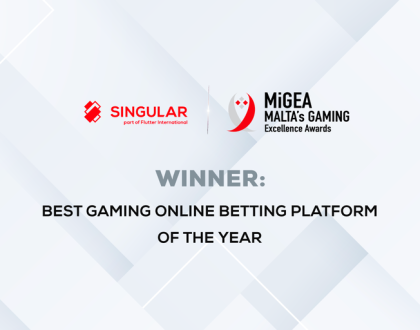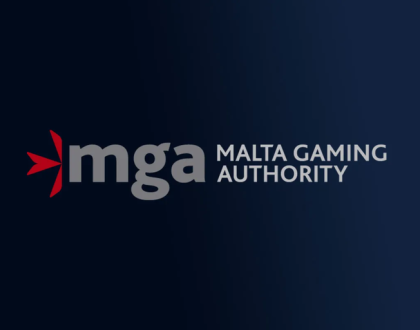iGaming and the Law – Copyright Issues

There’s no denying the growing importance of the iGaming industry in the digital world today. With this expansion comes a crucial need to address copyright issues that often arise in online gaming. From protecting original game content to navigating the use of licensed materials, understanding the complexities of copyright law is vital for both iGaming operators and developers.
Understanding Copyright Law
Basics of Copyright Law
With the rapid growth of the iGaming industry, understanding copyright law is crucial for all stakeholders in this sector. Copyright law provides creators of original works with exclusive rights to their creations, such as games, software, graphics, and music. This means that others cannot reproduce, distribute, or publicly display these works without permission
Copyright Eligibility for iGaming Content
An important aspect of copyright law is determining what types of content are eligible for protection. In the iGaming industry, original works such as game concepts, designs, graphics, sound effects, and code are all eligible for copyright protection. This means that iGaming companies can protect their unique games and content from being copied or used without authorization.
Plus, licensing deals in the iGaming industry often involve the use of copyrighted material. It is crucial for companies to ensure they have the necessary rights to use and distribute copyrighted works to avoid legal issues.
Durability and Scope of Copyright Protection
Protection under copyright law typically lasts for the life of the creator plus an additional 70 years. Thislengthyprotectionperiod ensures that creators have exclusive rights to their works for a substantial amount of time. Copyright protection also extends beyond just the exact reproduction of a work, covering derivative works and adaptations as well.
Copyright law provides a powerful tool for iGaming companies to safeguard their intellectual property and maintain a competitive edge in the market. By understanding the ins and outs of copyright law, iGaming businesses can protect their creations and avoid legal disputes that could impact their operations.
iGaming Software and Copyright
Now let’s research into the intricate world of iGaming software and its relationship with copyright law. iGaming software encompasses a wide range of applications and programs used in online gambling platforms, from casino games to sports betting software. These software programs are considered valuable assets for iGaming operators, as they drive user engagement and revenue generation.
Protection for iGaming Software
To safeguard their iGaming software from unauthorized use or reproduction, developers can seek copyright protection. Copyright law grants exclusive rights to the creators of original works, including software, providing them with legal recourse against infringing parties. By registering their software with the relevant intellectual property authorities, developers can establish a public record of ownership and enhance their ability to enforce their rights.
Licensing Agreements for Software
Copyright licensing agreements play a crucial role in governing the use of iGaming software. These agreements outline the terms and conditions under which a licensee can utilize the software, including restrictions on copying, distribution, and modification. Licensing agreements help software developers generate revenue while maintaining control over the use of their intellectual property.
Understanding the nuances of licensing agreements is necessary for both iGaming developers and operators, as failure to adhere to these agreements can result in legal consequences. It is crucial to consult legal experts to ensure that licensing agreements are drafted accurately and provide adequate protection for all parties involved.
Infringement Issues in iGaming Software
Agreements between iGaming software developers and operators must address potential infringement issues to prevent disputes and legal challenges. Infringement can occur when a party uses iGaming software without proper authorization, leading to claims of copyright infringement and potential financial penalties. Establishing clear protocols for monitoring and addressing infringement issues is crucial for mitigating risks and protecting the rights of all stakeholders.
Copyright in Online Gaming Communities
Not only do online gaming communities provide a platform for players to interact and engage with one another, but they also raise copyright concerns when it comes to user-generated content (UGC). This creates a complex legal landscape that requires a deep understanding of copyright laws to navigate effectively.
User-Generated Content (UGC) and Copyright
Copyright issues often arise in online gaming communities due to the nature of UGC, which can include anything from custom in-game items to player-created mods and artwork. While players may feel a sense of ownership over their creations, it’s imperative to remember that the original game developer or publisher holds the copyright to the game and its assets. This can lead to conflicts when players attempt to monetize or distribute their UGC without permission, potentially infringing on copyright laws.
Moderating UGC to Prevent Copyright Infringement
Any online gaming platform must take measures to moderate UGC effectively to prevent copyright infringement. This includes implementing clear guidelines for what is permissible within the community, as well as providing tools for reporting and removing infringing content. By actively monitoring and addressing copyright violations, platforms can protect themselves from legal repercussions and maintain a safe and fair environment for all users.
A well-drafted terms of service agreement can also help clarify the rights and responsibilities of users regarding UGC, giving platforms the legal grounds to take action against copyright infringements.
Legal Challenges with UGC in the iGaming Space
To complicate matters further, the global nature of online gaming communities means that copyright laws can vary significantly from country to country. This presents a challenge for platforms looking to enforce copyright protection uniformly across diverse player bases and legal jurisdictions.
For instance, some countries may have more stringent copyright laws than others, making it crucial for platforms to stay informed and adapt their moderation strategies accordingly. Failure to do so could result in facing legal action or reputational damage, highlighting the importance of proactive copyright management in the iGaming space.
Intellectual Property in iGaming Marketing
Despite the digital nature of iGaming, intellectual property laws still play a crucial role in regulating the industry. In the context of marketing in iGaming, there are several key intellectual property considerations that operators and affiliates must keep in mind to avoid legal pitfalls.
Branding and Trademark Considerations
Intellectual property rights in branding are vital in the iGaming sector to distinguish one operator from another. Establishing a strong brand that can be protected through trademark registration is vital for long-term success. Before launching any marketing campaigns, it is crucial to conduct thorough research to ensure that the chosen brand name and logo do not infringe upon existing trademarks.
Copyright in Advertising and Promotional Materials
Materials such as website content, promotional videos, and social media posts are subject to copyright protection. It is important for iGaming operators to obtain permission or a license for any third-party content used in their marketing materials to avoid copyright infringement claims. Additionally, creating original content can help establish a unique brand identity and prevent legal issues.
Understanding the nuances of copyright law in advertising and promotional materials is vital for iGaming operators to navigate marketing campaigns successfully. By respecting the intellectual property rights of others and proactively protecting their own content, operators can build a reputable brand while staying compliant with legal requirements.
Protecting the Marketing Aesthetics of iGaming Platforms
Intellectual property laws also extend to the visual elements and design of iGaming platforms. It is crucial for operators to protect the overall look and feel of their websites and apps through copyright and design rights. Copying the unique aesthetics of a competitor’s platform can lead to legal disputes and damage the reputation of the operator.
Trademark registration is another vital step in protecting the marketing aesthetics of iGaming platforms. By securing trademarks for logos, slogans, and other brand elements, operators can prevent competitors from using similar marks that could confuse consumers. This protection extends to online advertisements, social media campaigns, and other marketing efforts that contribute to the overall brand recognition of the iGaming operator.
International Copyright Concerns
Global Nature of iGaming
Your iGaming platform may have global reach, allowing players from different countries to access your games and content. This presents concerns regarding international copyright laws and how they apply to the digital environment of iGaming.
Harmonization of International Copyright Laws
For iGaming operators, the lack of uniformity in international copyright laws can be a significant challenge. For instance, different countries may have varying levels of protection for intellectual property rights, leading to complexities in ensuring compliance.
Dealing with Copyright Infringement Across Borders
Copyright infringement is a serious issue in the iGaming industry, especially when it occurs across borders. It can be difficult to track and address copyright violations when they involve multiple jurisdictions. Implementing strategies for monitoring and enforcing copyright protection is crucial for iGaming operators to avoid legal repercussions and safeguard their intellectual property rights.
Legal Disputes and Resolution in iGaming
To effectively navigate the complex world of iGaming, understanding legal disputes and their resolution mechanisms is crucial. As copyright issues continue to arise in the industry, it is vital for operators and developers to be aware of the potential legal pitfalls and how they can be addressed.
Case Examples of Copyright Disputes in iGaming
An area of contention in iGaming is the unauthorized use of copyrighted material in games and platforms. Recent cases have seen game developers being sued for infringing on existing copyrights, leading to lengthy legal battles and hefty settlements. It is imperative for all parties involved in iGaming to respect intellectual property rights to avoid costly disputes.
Role of Arbitration and Mediation in Resolving Conflicts
Role of arbitration and mediation play a significant part in resolving conflicts in the iGaming industry. These alternative dispute resolution methods offer a more efficient and cost-effective way to settle disputes compared to traditional litigation. Arbitration and mediation provide a neutral ground for parties to discuss their issues and reach a mutually agreeable solution, helping to minimize disruptions to business operations.
It is important for iGaming companies to include arbitration and mediation clauses in their contracts to ensure that any disputes can be resolved swiftly and confidentially. By opting for these methods, parties can avoid the lengthy court processes and maintain a level of confidentiality that is imperative in the competitive iGaming sector.
Impact of Legal Decisions on the iGaming Industry
For the iGaming industry, legal decisions can have far-reaching consequences that impact operations and profitability. Precedents set in copyright cases, for example, can shape how intellectual property rights are perceived and enforced in the industry. It is crucial for companies to stay up to date with legal developments and adapt their practices to align with the law to avoid potential liabilities and reputational damage.
iGaming companies should proactively engage with legal experts to ensure compliance with copyright laws and other regulations to mitigate risks and foster a secure operating environment. By staying informed and proactive, companies can protect their assets and reputation while contributing to a sustainable and compliant iGaming ecosystem.
Future Trends and Copyright in iGaming
Technological Advancements and Copyright Challenges
All industries, including iGaming, are constantly evolving with technological advancements like virtual reality (VR), augmented reality (AR), and artificial intelligence (AI). These technologies present exciting opportunities for iGaming developers to create immersive gaming experiences. However, these advancements also bring copyright challenges, as creating original content in these mediums requires navigating complex legal implications. Content creators must be vigilant in protecting their intellectual property rights in this rapidly changing landscape.
Developing Legal Frameworks Around Emerging Tech
Copyright laws are continuously evolving to keep pace with technological advancements. Developing legal frameworks around emerging technologies is crucial to address copyright issues effectively. As new tech like blockchain and machine learning disrupt the iGaming industry, legal experts must proactively update regulations to protect content creators and uphold copyright standards. It is imperative for stakeholders to collaborate and stay informed on emerging legal challenges to ensure a fair and secure iGaming landscape.
Copyright laws are continuously evolving to address challenges posed by new technologies in the iGaming industry. It is crucial for legal frameworks to adapt to these advancements to uphold copyright standards and protect intellectual property rights.
Anticipating Changes and Adaptations in Copyright Regulations
To stay ahead of the curve, iGaming companies must anticipate changes and adaptations in copyright regulations. As technology continues to advance, regulatory bodies will likely introduce new laws and guidelines to address emerging challenges. iGaming operators must closely monitor these developments to ensure compliance and mitigate risks associated with copyright infringement. Proactive measures, such as conducting regular audits and staying informed on copyright updates, are imperative for iGaming businesses to navigate the evolving legal landscape successfully.
With technology continually reshaping the iGaming industry, companies must be proactive in anticipating and adapting to changes in copyright regulations to protect their intellectual property and maintain legal compliance.
Conclusion
Following this exploration of copyright issues in the iGaming industry, it is clear that there are complex legal considerations that companies must navigate in order to protect their intellectual property. Given the global nature of online gaming and the ever-evolving nature of technology, it is imperative for iGaming operators to stay updated on copyright laws to avoid potential legal consequences.
In closing, by understanding the intricacies of copyright law and taking proactive measures to protect their intellectual property, iGaming companies can safeguard their creative works and maintain their competitive edge in the rapidly-growing online gaming market.
FAQs
What types of content in iGaming are eligible for copyright protection?
Original works such as game concepts, designs, graphics, sound effects, and software code are eligible for copyright protection in the iGaming industry. This protection prevents unauthorized reproduction or use without permission.
Why are licensing agreements important in iGaming software development?
Licensing agreements define how iGaming software can be used, ensuring developers retain control over their intellectual property while generating revenue. They outline terms for copying, distribution, and modification to avoid legal disputes.
How long does copyright protection last for iGaming content?
Copyright protection typically lasts for the life of the creator plus an additional 70 years. This extended period safeguards iGaming companies’ intellectual property rights, covering not only direct copies but also adaptations and derivative works.
What are the copyright considerations for user-generated content (UGC) in online gaming communities?
While players create content within games, the original game developer holds copyright. Unauthorized distribution or monetization of UGC can lead to copyright infringement claims, emphasizing the importance of clear usage guidelines.
How do international copyright laws affect iGaming operations?
Due to the global reach of iGaming platforms, operators must navigate varying international copyright laws. Differences in protection levels and enforcement make it crucial to adapt strategies for compliance and legal risk management.
Recommended Posts

1win Partners Affiliate Program
July 3, 2024

Singular Wins at MiGEA Awards 2024
July 3, 2024

MGA Outsourcing Compliance Guidelines
July 3, 2024




